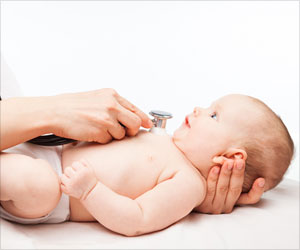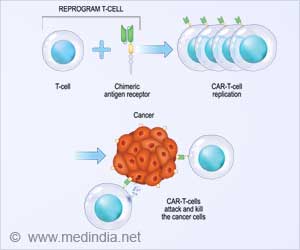Food allergy in children is particularly linked to elevated social anxiety and fear of social rejection and humiliation.
Highlights
- Food allergies are increasingly common among the youth in the U.S. with recent estimates as high as 8 percent.
- Children with a food allergy had a significantly higher prevalence of childhood anxiety.
- Childhood allergy did not influence or make the caregivers more prone to depression or anxiety as they helped the children to cope.
Food Allergy
Food allergies are increasingly common among youth in the U.S. with recent estimates as high as 8 percent. Until now little was known about the prevalence of food allergy in low socioeconomic ethnic minority populations.
Food allergy is, "An abnormal response to any particular food triggered by body's immune system".
Some common foods that trigger allergic reactions in children and some adults are peanuts, eggs, milk, fish, wheat, and soy.
Food Allergy linked to Childhood Anxiety
They controlled for an asthma diagnosis in the children, as anxiety and mood disorders are more prevalent among youth with asthma and especially more common in low socioeconomic minority children.
Among the children with a food allergy, 57 percent reported having symptoms of anxiety compared to 48 percent of children without a food allergy. Approximately 48 percent of the children had symptoms of depression with or without a food allergy.
"Management of food allergy can be expensive both in terms of food shopping, meal preparation, and the cost of epinephrine auto-injectors, which expire annually," said Renee Goodwin, PhD, in the Department of Epidemiology at the Mailman School of Public Health and lead author.
These demands could result in higher levels of anxiety for those with fewer financial resources and further heighten anxiety symptoms in children and their caregivers. The results suggest that food allergy is particularly linked to elevated social anxiety and fear of social rejection and humiliation.
"There are a number of possible explanations for the relationship found between food allergy diagnosis and increased social anxiety issues in this sample of pediatric patients," noted Dr. Goodwin.
"Management of a potentially life-threatening condition may be anxiety provoking, and some children may experience increased social anxiety about being "different" from other children depending on their age and how food allergy is managed by adults in a particular setting."
The researchers also point out a possible explanation for not finding a link between food allergy and depression in children. The sample was young, and the mean age of onset for depression is significantly later than anxiety.
"It would be worthwhile to examine these relationships among older adolescents and young adults with food allergy who are at the peak of risk for depression onset, especially because early anxiety is associated with increased risk for subsequent onset of depression," said Jonathan Feldman, PhD, professor at Ferkauf Graduate School of Psychology, Yeshiva University.
"With the high prevalence of food allergies today, education in schools remains a priority," said Dr. Goodwin. Given the strong association between food allergy and social anxiety in children future investigations on the food allergy-mental health relationship are also warranted in clinical, school, and community-based settings which could aid in the development of interventions.
Reference
- Renee Goodwin et al., Researchers find link between food allergies and childhood anxiety, Journal of Pediatrics (2017).
Source-Medindia
















